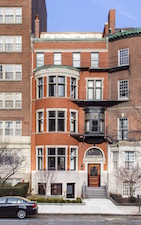|
Biography:
|
Applied physicist Watt W. Webb, the S.B. Eckert Professor of Engineering Emeritus and a pioneer in methods for imaging living biological systems, died Oct. 29, 2020 in New York City. He was 93.
Webb was best known as the biophysicist who co-invented fluorescence correlation spectroscopy and multiphoton microscopy – imaging techniques that have revolutionized how scientists observe biological dynamics and
structures deep within living tissue.
In 1955 he completed a Sc.D. in materials science physics and mathematics, also from MIT. He returned to Union Carbide after MIT, but joined the Cornell faculty in 1961 as an associate professor of engineering physics. He was named professor of applied physics in 1965 and received the S.B. Eckert Professor in Engineering title in 1998. He served as director of the School of Applied and Engineering Physics from 1983-88. He retired from Cornell in 2012 as an emeritus professor.
Watt Wetmore Webb was born Aug. 27, 1927 in Kansas City, Missouri. As a child, he wrangled horses in southern New Mexico and spent time as a young man learning about the business world working at his father’s bank. He entered MIT at 16. At MIT, Webb majored in business and engineering administration, but said he “didn’t study very hard.” He said he was more interested in competing on MIT’s championship sailing team and entering target-shooting competitions. Throughout his life, sailing remained a passion. He met Page Chapman, his wife of more than 60 years, sailing on the Charles River.
Webb was elected to the National Academy of Engineering in 1993 and to the National Academy of Sciences in 1995. Webb was a Guggenheim Fellow, a fellow of the American Physical Society (APS) and of the American Association for
the Advancement of Science, a founding fellow of the American Institute of Medical and Biological Engineers, and a member of the American Academy of Arts and Sciences, among other academic honors. He won the APS Biological Physics Prize in 1990; the Ernst Abbe Lecture Award of the Royal Microscopical Society (UK) and Carl Zeiss (Germany) in 1997; the Michelson-Morley Award in 1999; the Rank Prize for Opto-electronics in 2000; and the Jablonski Award Lecturer in 2001.
|


